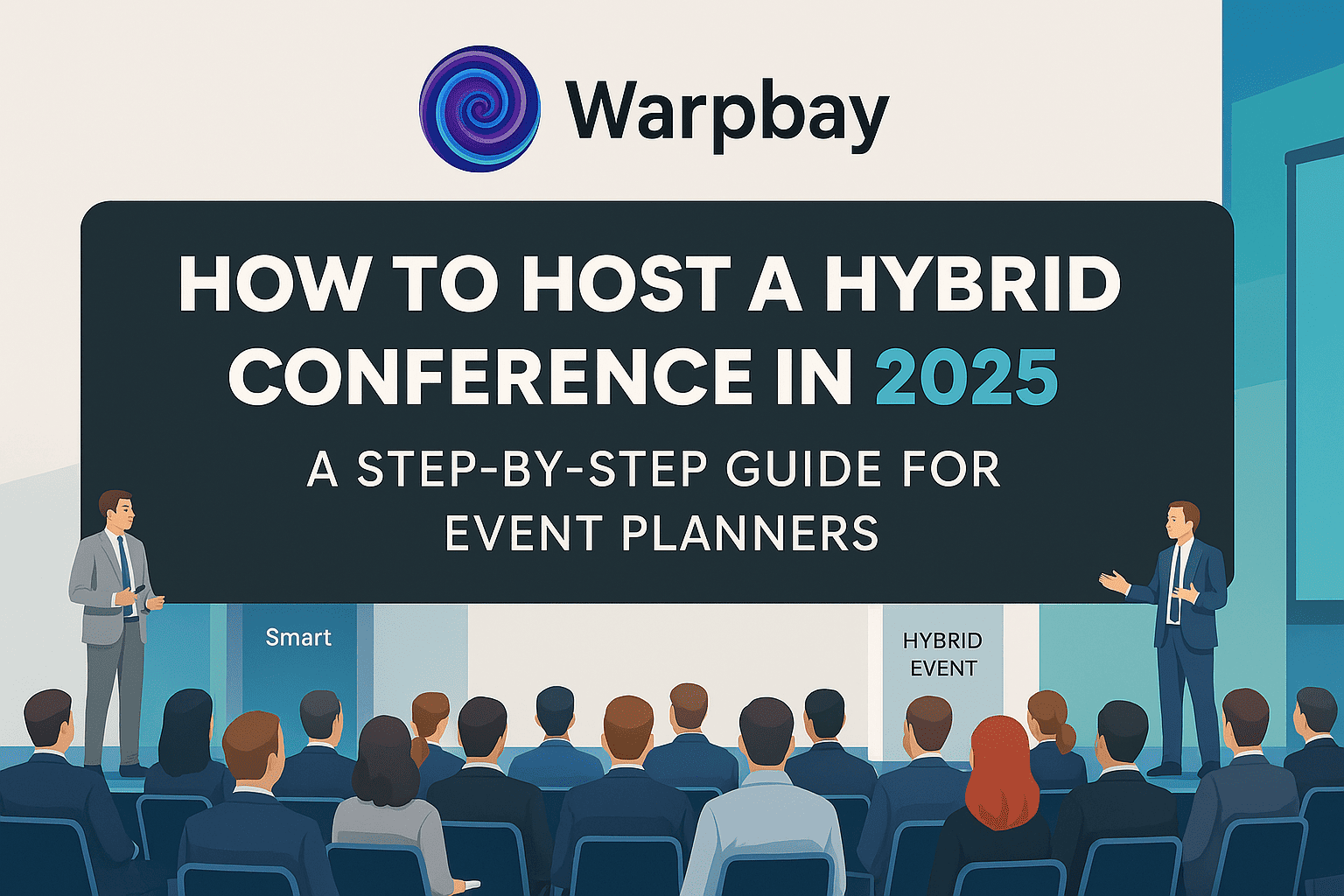Introduction
Planning a modern conference has evolved beyond traditional methods. In 2025, hybrid conferences have emerged as the gold standard, blending in-person and virtual experiences. Event planners now leverage artificial intelligence (AI) to enhance every phase of the event — from pre-planning to post-event analysis. This comprehensive guide explores how AI is revolutionizing the industry, with practical steps, real-world examples, and actionable insights.
Why Hybrid Conferences Are the Future
Hybrid events offer unmatched flexibility, combining affordable conference venues in Kuala Lumpur or elsewhere with robust virtual conference platforms for small businesses. This approach broadens your reach, reduces costs, and improves attendee satisfaction.
Step-by-Step Guide to Hosting a Hybrid Conference in 2025
Step 1: Pre-Event Planning
1.1 AI for Venue Selection
AI-powered platforms analyze logistics, attendee density, travel patterns, and budget to recommend optimal venues. Event professionals use this tech to identify affordable conference venues that match both virtual and in-person needs.
1.2 Audience Targeting with AI
Machine learning tools process historical data, behavior patterns, and social media trends to identify high-value audiences. Tools can segment users for conference sponsorship proposal targeting or tailor messaging to boost attendance.
1.3 Event Marketing Automation
AI automates and personalizes email campaigns, social media ads, and blog promotions. Event planners use platforms to promote a conference on social media, optimize ad spends, and improve open rates.
1.4 Internal Tools
- Conference planning checklist for event organizers
- Conference abstract submission guidelines
Step 2: During the Event
2.1 AI-Powered Chatbots
AI chatbots handle FAQs, direct attendees, and manage check-ins. This ensures a smooth experience both online and on-site.
2.2 Smart Networking Tools
AI-driven apps analyze attendee profiles and suggest meaningful connections, enhancing conference networking sessions and participation.
2.3 Real-Time Translation & Accessibility
Tools like AI-based speech recognition and translation make conference interpreting services seamless, especially for international meetings.
2.4 Personalized Engagement
Use AI to recommend breakout sessions, share real-time polls, and gamify sessions. This significantly increases conference attendee engagement.
2.5 On-Site Setup Support
- Conference room booking software for enterprises
- How to set up conference room audio systems
- Tips for engaging conference presentations online
Step 3: Post-Event Analysis
3.1 AI-Powered Feedback Collection
Natural Language Processing (NLP) tools collect and summarize feedback in real time from various sources including chat, email, and surveys.
3.2 Sentiment Analysis
AI identifies attendee sentiment to highlight strengths and weaknesses of your event, ensuring actionable improvement areas.
3.3 ROI Measurement
Platforms track ticket sales, engagement, sponsor visibility, and more to calculate return on investment, helping you create better conference sponsorship proposals in the future.
Real-World Case Studies
Case Study 1: Salesforce Dreamforce
Dreamforce 2023 integrated AI-powered matchmaking and engagement tools, increasing session participation by 40% and improving sponsor lead generation.
Case Study 2: Web Summit
By using AI to analyze attendee data, Web Summit improved its personalized recommendations, leading to a 25% rise in networking satisfaction.
Benefits of AI in Hybrid Conferences
- Time and cost savings via automation
- Improved personalization for attendees
- Enhanced data-driven decision-making
- Increased ROI and sponsorship success
Challenges to Consider
- Data privacy and compliance
- Initial investment and learning curve
- Dependence on reliable tech infrastructure
Best Practices for Integrating AI in Conference Planning
- Start with clear objectives. Define what you want AI to help with — personalization, marketing, logistics, or analytics.
- Choose the right tools. Use trusted platforms with good support and scalability.
- Train your team. Ensure your staff understands how to leverage AI tools.
- Test before launch. Pilot AI tools in small events before going live on a large scale.
- Continuously optimize. Use post-event AI data to improve future event planning.
Conclusion
In 2025, hosting a successful hybrid conference event means integrating intelligent tools that enhance every phase of execution. From AI-driven conference mobile apps to smart badge printing services, the technology is not just a convenience — it’s a necessity. By embracing AI, event professionals can deliver more engaging, data-driven experiences that wow attendees and impress sponsors.
Ready to elevate your next event with cutting-edge AI tools? Check pricing here.

